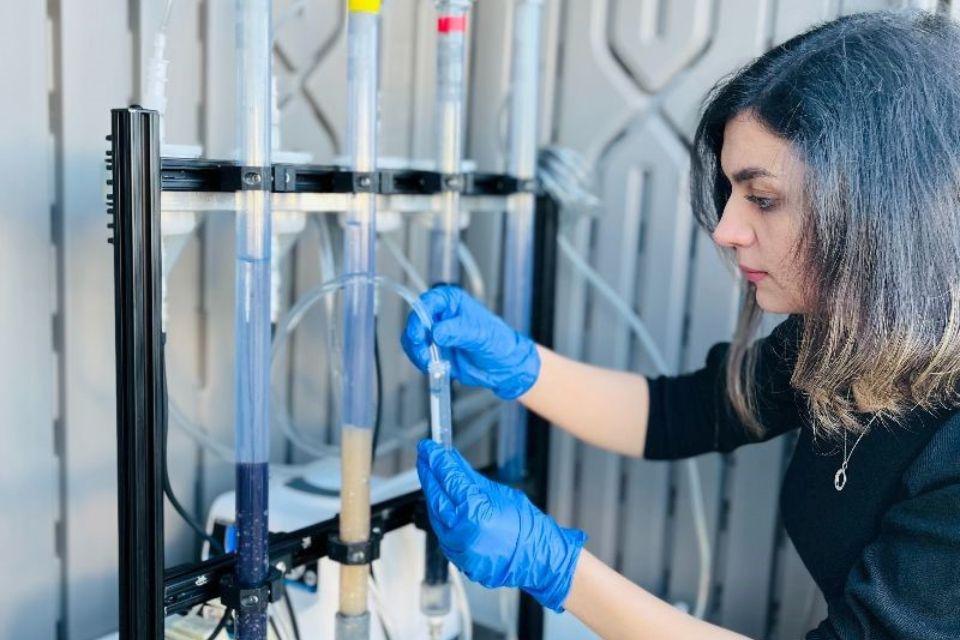UBC Engineers have developed a new water treatment that removes “forever chemicals” from drinking water safely, efficiently – and for good.
“Think Brita filter, but a thousand times better,” says UBC chemical and biological engineering professor Dr. Madjid Mohseni, who developed the technology.
What is PFAS and why is it bad?
Forever chemicals, formally known as PFAS (per-and polyfluoroalkyl substances) are a large group of substances that make certain products non-stick or stain-resistant. There are more than 4,700 PFAS in use, mostly in raingear, non-stick cookware, stain repellents and firefighting foam. Research links these chemicals to a wide range of health problems including hormonal disruption, cardiovascular disease, developmental delays and cancer.
How do you remove PFAS from water?
To remove PFAS from drinking water, Dr. Mohseni and his team devised a unique adsorbing material that is capable of trapping and holding all the PFAS present in the water supply.
The PFAS are then destroyed using special electrochemical and photochemical techniques, also developed at the Mohseni lab and described in part in a paper published recently in Chemosphere.
While there are treatments currently on the market, like activated carbon and ion-exchange systems which are widely used in homes and industry, they do not effectively capture all the different PFAS, or they require longer treatment time, Dr. Mohseni explained.
To read the full story, please visit the UBC Applied Science announcement.
To connect with the Applied Science Research Team, contact us today.
